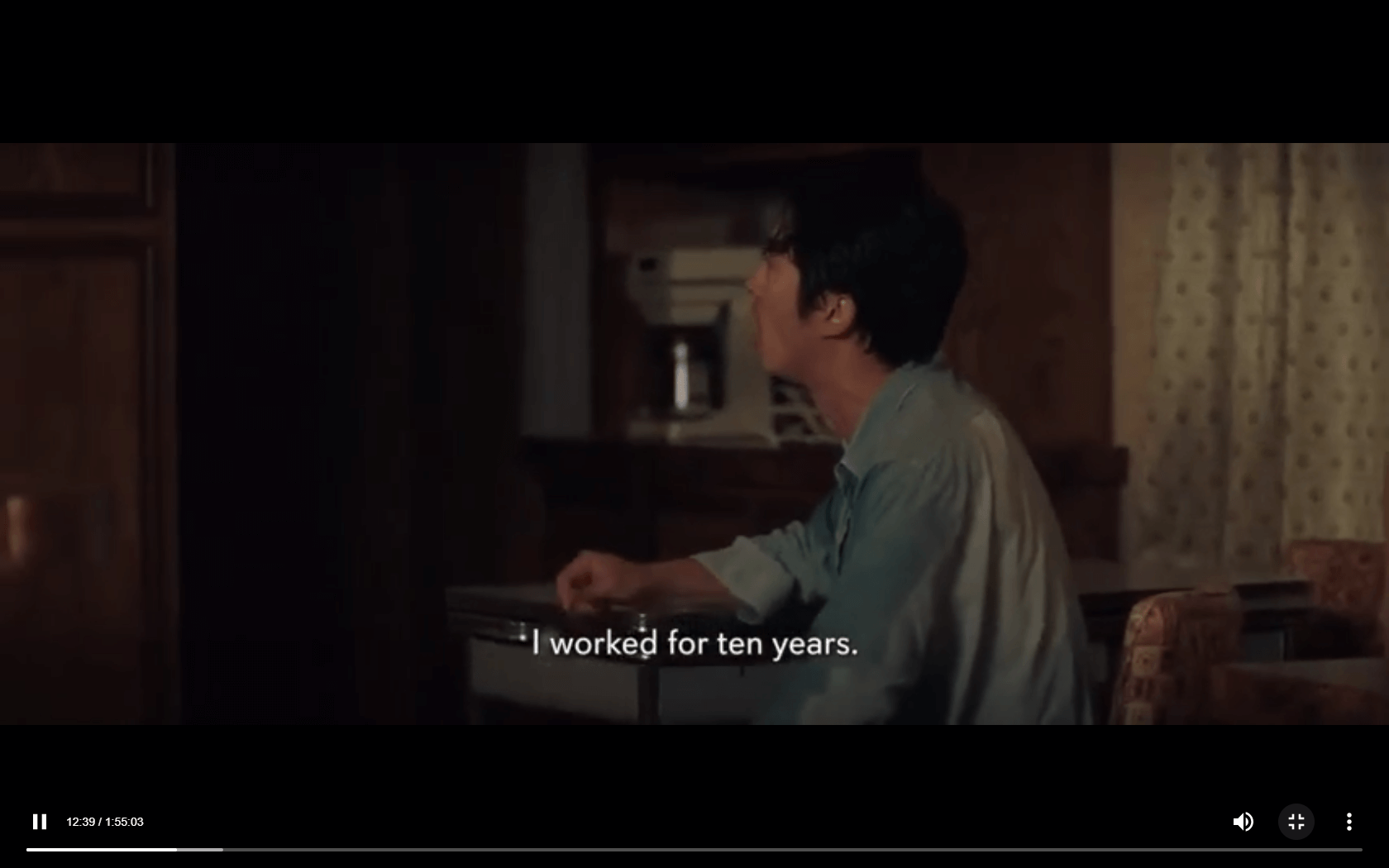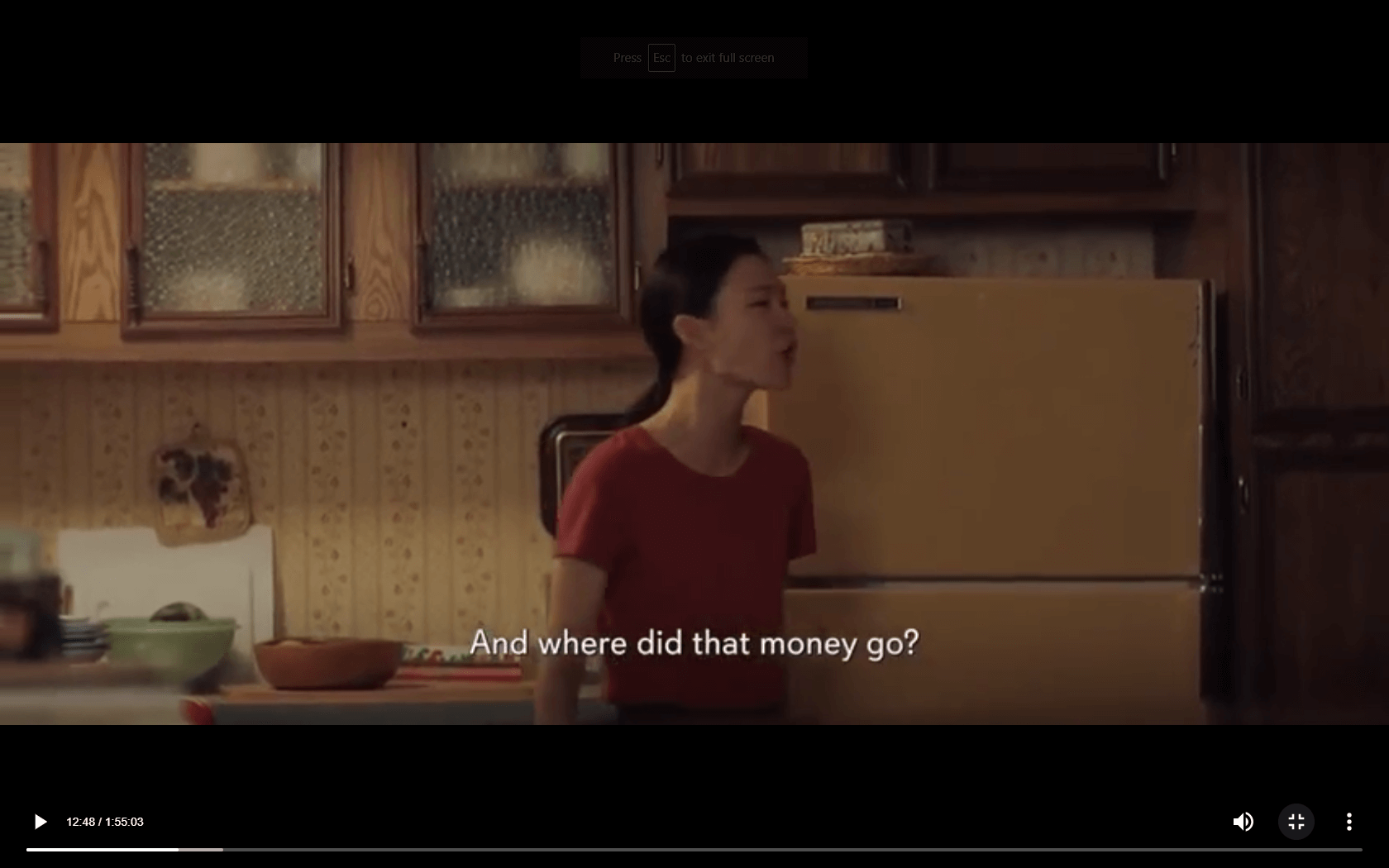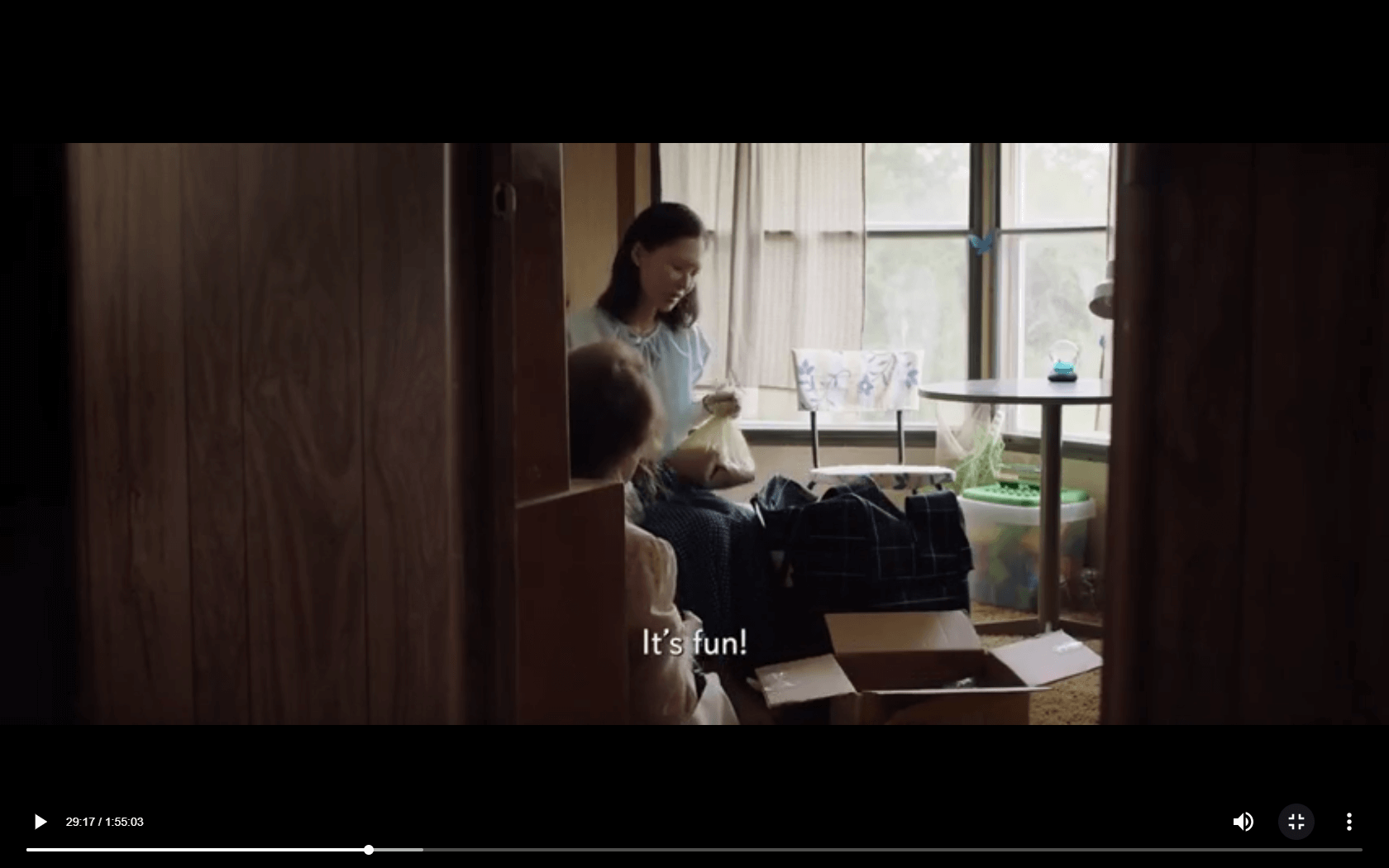Examining the Aspect of Identity Crisis as Dramatized in Lee Isaac Chung’s Minari
The sample essay on identity crisis below provides a deep exploration of how cultural tensions and personal struggles are dramatized in Lee Isaac Chung’s Minari. This essay moves beyond a simple analysis of the film, delving into the psychological and cultural challenges faced by the Yi family as they navigate the complexities of assimilation and heritage in 1980s America. It offers a compelling look at themes of belonging, generational conflict, and the evolving nature of identity.
If examining such intricate cultural and emotional dynamics feels overwhelming, professional paper help is always available to craft a custom essay that tackles these nuanced topics with precision and care.
Asian immigrants constitute a notable proportion of the overall foreign-born population. Typically, Asian-born immigrants, like any other immigrants, come to the United States with the objective of improving their economic situation and enhancing their lifestyles. It is primarily accepted among many Korean immigrants that the United States is a desirable destination, specifically if the upheaval across their home countries is to be considered. However, as immigrant individuals are on their journey to search for better lives, they encounter new aspects that can result in an identity crisis. Identity consists of experiences, relationships, memories, beliefs, and value systems that collaboratively define the sense of self among individuals. Notably, individuals’ sense of self is anticipated to remain relatively stable and constant despite different experiences and new challenges. However, this is not the case, given that individuals may encounter particular factors that force them to question their instilled sense of self, ending up in an identity crisis. Such an aspect is what defines the characters in Minari, a prominent 2020 movie directed by Lee Isaac Chung. Minari dramatizes the life of a Korean family that relocates to the rural United States in the 1980s. The protagonist’s role is played by Jacob, a husband to Monica and a father to David and Anne. As the film unfolds, these characters are subjected to various events which culminate in an identity crisis. In this regard, the fundamental objective behind this essay is to paint a clear picture illustrating how the characters in Minari experience an identity crisis.
The first encounter of identity crisis in Chung’s Minari is evidenced through the conflicting commitments that Jacob encounters. In this film, Jacob is depicted as an adult who must fulfill three primary responsibilities. Kristianto and Wahyuni illustrate that Jacob is a “first child, father, and farmer” (348). As the first child, Jacob is expected to take responsibility for his family. His family, including his mother, had to be put first before anything else. Although Jacob successfully completes his commitment as the first child, Monica wants him to be responsible for her and his children. Jacob was a father, meaning that even if he provided for his mother, he had no option but to take responsibility for caring for his children and wife. On the same note, Jacob feels the need to pursue his dream and be happy. The conflicting commitments that Jacob encounters send him to an inescapable identity crisis, subjecting him to a constant conflict with his wife, Monica. Pictured below is a conversation between Jacob and Monica, which perfectly illustrates how Jacob experienced an identity crisis. In this conversation, Jacob discloses how he worked for ten years while “Living in a tiny home with no money!” (Minari 00:12:45-46). However, Monica retorts by asking Jacob, “And where did that money go?” (00:12:48-49). Jacob further explains, “I’m the eldest son. I had to take care of my family” (00:12:55-57). This scene perfectly underscores a form of identity crisis experienced by the characters in Chung’s Minari. For instance, while Jacob wanted to be committed to taking care of his family, his wife and children were also counting on him. Besides, his farm also depended on Jacob, and this points directly to the conflicting commitments Jacob had to deal with, explaining how he ended up in an identity crisis.


Jacob’s case illustrates how immigrants, particularly those in farming, faced a dilemma of choosing between their native farming techniques or adapting to the American farming techniques, ending up in another form of identity crisis. In this particular film, Jacob encountered significant differences between American and Korean farming cultures. A scene from the movie, precisely spanning from minute 00:16:14 to 00:17:14, depicts Jacob and his son David experimenting with the services of a water finder. As shown in this particular scene, an individual would close their eyes and utilize a V-shaped piece of wood to direct him to an area believed to be a water source. However, Jacob found such American farming cultures far-fetched and absolutely absurd. This can be seen from his firm emphasis that “Americans … Believing in that nonsense! Korean people use their heads” (Minari 00:17:17-19). Jacob found the American farming culture conflicting with the Korean farming culture, and thus, he could not adapt to the local values but decided to use Korean farming values. Despite the external pressures to conform, Jacob was determined to defy social norms and heavily embrace his Korean culture. When Jacob and his family migrated to the United States, a life model was constructed around immigrants, who were expected to work in poultry farms as classifiers of the chick sexes. As a determined and hardworking individual who significantly believes in rationality, Jacob emphasized getting a life away from that of many immigrants. However, he encounters several challenges that put his identity to the test. For example, while Jacob believed in digging his well as a way of upholding his Korean identity, he was forced to pay for the city water (adapt to the American life) once his well dried up.
The characters in Chung’s Minari struggle with complex identity issues as they are compelled to navigate the tensions between their Korean heritage and their aspirations to assimilate into the American culture. Similar to other immigrants coming to the United States from another country, Jacob and his family, referred to as the Yi family, were often perceived as outsiders. Most importantly, they were typically evaluated in terms of their unfamiliar and strange consumption habits. Uzuner illustrates that this family was compelled to choose to adhere to their Korean culture, the American culture, or a blend of the two cultures (3). Meanwhile, Minari documents how the parents, Jacob and Monica, and later the grandmother, attempted to preserve their Korean culture while trying to live a thoroughly American lifestyle. On the other hand, the children were more inclined toward a more American lifestyle while submerging the Korean culture. For instance, David and Anne would often eat their breakfast with a “bowl of corn flakes, milk, and fruit juice in their quotodian life, mimicking the typical American food culture” (Uzuner 3). Identity crisis is well-manifested in a scene between Jacob and her daughter Anne, who asks him, “Hey Dad. Isn’t it better to grow American vegetables” (Minari 00:25:57-59). However, Jacob articulates that every year, thousands of Koreans immigrate to the United States, and they would miss Korean food. This scene demonstrates that even though Yi’s family is already on the American land, they are not ready to conform to the American culture but heavily cling to their American culture.
The arrival of the grandmother, Sonja, further adds another layer of complexity to the identity crisis experienced by the characters. Markedly, Soonja unapologetically embraced her Korean identity. This sentiment is justified in a scene pictured below when Sonja arrives at Jacob’s home carrying Korean food, such as chili powder and anchovies. On the one hand, Monica is overwhelmed by the fact that she is lucky to encounter Korean foods, herbs, and spices brought by her mother. Such a scenario illustrates how Monica intensely longed for her home country. Despite being in an American society, Monica is not ready to forsake her Korean identity as she still firmly holds on to the belief that Korean food is much better than American food. A similar instance is depicted when Monica and the grandmother join efforts to prepare a Korean medical herb that would cure David’s heart disease. They had the option of seeking American drugs, but since they still strongly identify with Korean culture, they opted for Korean herbs. Despite the fact that Monica and the grandmother were proud of their Korean culture, David and Anne found the American culture more thrilling and thus were more willing to adhere to it and overlook their Korean identity. For example, David hated their grandmother because she smelt Korean, something that did not sit right with him. He constantly refused to share his room with Soonja, citing the Korean smell. David already identifies as a Korean-American boy, which prompts him to start behaving like a Westerner. On the contrary, he categorizes his grandmother as non-Western, excessively Korean, and thus foreign. David constantly criticizes his grandmother, who, from his perspective, does not fit the criteria of a good grandmother since she neither makes cookies nor speaks English like other Americans. David, as a young boy caught in the midst of the two cultures, struggles with feelings of alienation and confusion. He ends up defining his sense of identity by finding a balance between the two cultures amidst familial expectations and assimilation pressures.

The fluidity and instability that characterize cultures portrayed in Minari heavily contribute to the identity crisis experienced by the characters. Overall, Minari depicts all the characters on a journey of cultural negotiation. They grapple with the delicate balance between their native Korean heritage and the need to experience a fully American life. The characters here are faced with two sets of cultural orientations, which are the traditional and contemporary worlds, a conflict that triggers an internal struggle that runs throughout the story. There is a contradiction between the traditional values they hold and what the adoptive country expects from them as new immigrants; thus, this family has to struggle for some kind of identity while living in a totally strange place. This integration process is depicted in the film as an ever–prevading sense of transience and questioning, leading to deep personal crises among individuals. Minari depicts the multifaceted challenges of immigrant life. It highlights how adjusting to a new culture shapes who we are. The film emphasizes that cultural identities are not fixed but rather evolve over time. It also celebrates the strength of those who navigate the complexities of cultural change and forge new identities.
In conclusion, it is essential to note that individuals travel from one region to another for various reasons. People can migrate from their current nation to another nation in search of better living conditions, as is the case of the Yi family depicted in Chung’s Minari. As illustrated in the above discussion, when people relocate to new places, they also encounter different cultures and lifestyles. This can challenge their beliefs, experiences, relationships, memories, and value systems and, in return, subject them to an identity crisis. The above discussion has taken a definitive stance to illustrate how the characters in Minari experience an identity crisis. Specifically, the analysis has demonstrated that once they relocated to the United States from Korea, Jacob and Maria encountered new experiences, which sometimes made them question their identity. At times, they were not sure on which side, whether American or Korean, they should fall. The parents and the children entered an identity crisis whereby, on the one side, the parents held strongly to their Korean identity while the children, on the other hand, already embraced the American identity.
Works Cited
- Kristianto, Ignatius Indra, and Aprilia Kristiana Wahyuni. “The Representation of Identity Crisis in Minari: A Critical Discourse Analysis.” Humanitatis: Journal of Language and Literature 8.2 (2022): 339-352.
- Minari. (2020).
- Uzuner, Nagehan. “Lee Isaac Chung, Minari (2020): Having an Amerikorean Life.” Markets, Globalization & Development Review 6.2 (2022).
-
Other services: